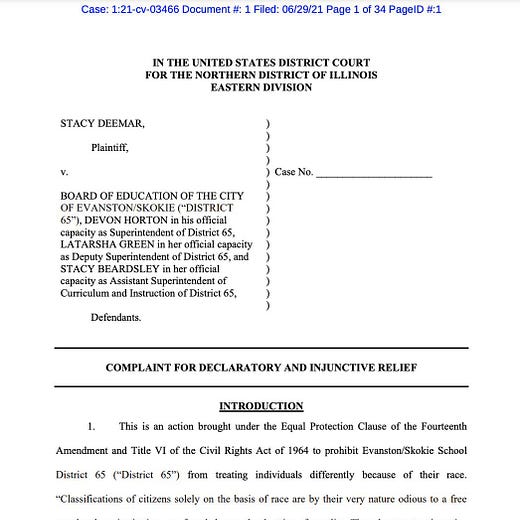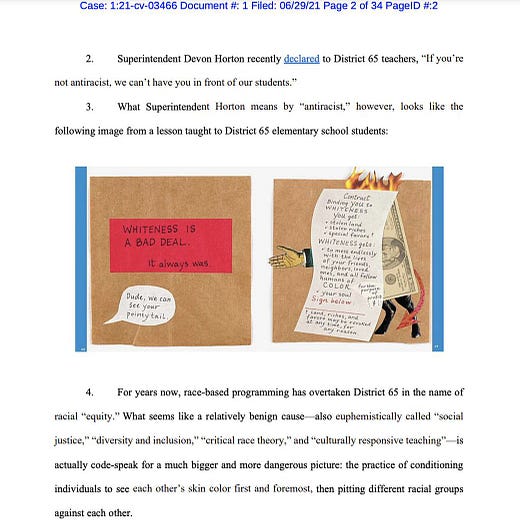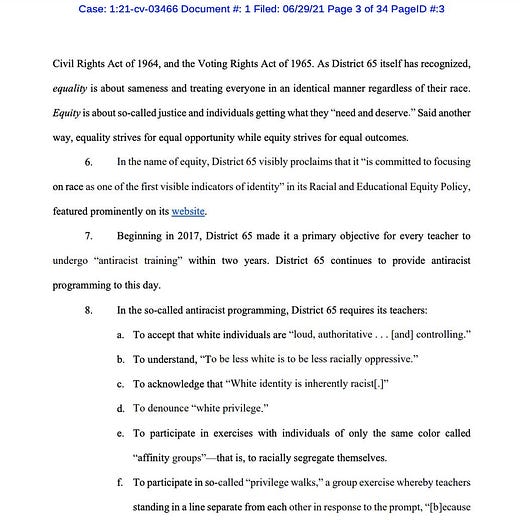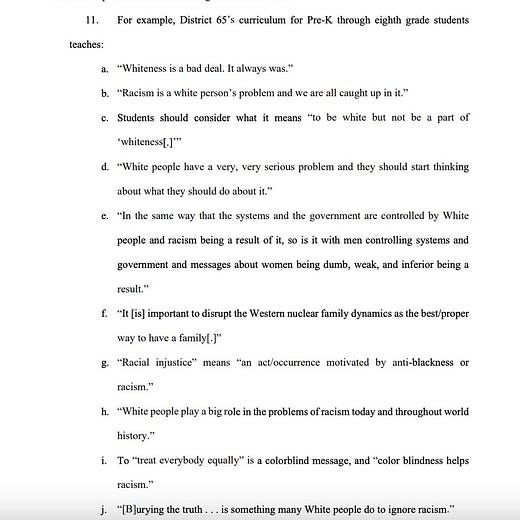E-Pluribus | July 1, 2021
The silent majority needs to speak up against illiberalism, the author of White Fragility is back, and science takes a back seat to diversity at the National Institutes of Health.
A round up of the latest and best writing and musings on the rise of illiberalism in the public discourse:
Robert Tracinski: The Line Between Liberal and Illiberal
At his relatively new Substack site Symposium, Robert Tracinski highlights the growing resistance to illiberalism, but says that even if the silent majority backs this resistance, silent support isn’t going to cut it.
We live in an era of growing illiberalism and intolerance on both the left and the right, which is one of the reasons this publication exists. But we also live in an era of growing rebellion against this illiberalism—also one of the reasons this publication exists.
[…]
I have found myself writing “liberal [sic]” a lot lately. Those of us who identify as “classical liberals” have often grumbled that the term was co-opted in the 20th Century by people who wanted freedom in the realm of ideas and personal lifestyle while advocating overbearing government controls and a relentlessly constricted range of freedom in our economic lives. Well, now the inversion is complete, because “liberal” is casually used to refer to the faction that is most opposed to freedom in the realm of ideas and lifestyle, too.
This is not a mere semantic quibble. It’s something we’re going to have to fix, because how can we defend a free society when we have no word for it?
[…]
There is a lot of evidence for a “silent majority” in favor of liberalism, but so far there is far too much emphasis on the word “silent.” In that respect, the most important thing written on this in the last week is from Abigail Shrier, who has been ostracized for her criticism of overaggressive “transition” treatment for transgender children.
[…]
It’s time for the silent majority to stop being so silent. The overwhelming majority of people don't want the censorious system of conformity that we're getting. If we all spoke up at once, that wold become obvious, and none of us would have anything to fear.
Read it all at Symposium.
Matt Taibbi: Our Endless Dinner With Robin DiAngelo
Robin DiAngelos, the author of White Fragility, is out with another book (or “booklike product”, as Matt Taibbi puts it) called Nice Racism. Saying Taibbi’s review is brutal would be an understatement, but he provides plenty of examples to make his case.
Nice Racism’s central message is that it’s a necessity to stop white people from seeing themselves as distinct people. “Insisting that each white person is different from every other white person,” DiAngelo writes, “enables us to distance ourselves from the actions of other white people.” She doesn’t see, or maybe she does, where this logic leads. If you tell people to abandon their individual identities and think of themselves as a group, they sooner or later will start to behave as a group. Short of something like selling anthrax spores or encouraging people to explore sexual feelings toward nine year-olds, is there a worse idea than suggesting — demanding — that people get in touch with their white identity?
If DiAngelo’s insistence that “I don’t feel guilty about racism,” reveling in scenes of making people experience and re-experience racial discomfort, and weird puffery in introducing herself by saying things like, “I am Robin and I am white” feel familiar, it’s because she’s hitting all the themes favored by Klansmen and identitarian loons of yore. Read a book like David Duke’s My Awakening (if you can stand it, you can find excerpts here) and you’ll encounter the same types of passages present in Nice Racism.
Read it all.
Heather Mac Donald: The NIH’s Diversity Obsession Subverts Science
As we have noted more than once here at PLURIBUS, “follow the science” is more popular as a catchphrase than a practice. Heather Mac Donald writes at the Wall Street Journal that the National Institutes of Health is allowing “diversity” rather than scientific merit to dictate how grants will be allocated, and our society will pay a price for these misplaced priorities.
Each “plan for enhancing diverse perspectives” must show how the principal investigator will “empower” individuals from groups “traditionally underrepresented” in biomedical research, such as blacks, the disabled, women and the poor. Institutions are also covered by the diversity mandate. Researchers working on an NIH neuroscience grant should be drawn from institutions that are traditionally underrepresented in biomedical research, including “community-based” organizations.
Dr. Collins provided no evidence for “structural racism” other than demographic data on NIH’s grant applicants and recipients. Black applicants are “present in far fewer numbers compared with their representation in the US population, 13.4%,” according to Dr. Collins’s announcement. In 2020 black scientists made up 2.3% of the 30,061 funding applications the NIH received. Less than 2% of NIH grants go to black principal investigators.
To Dr. Collins and his academic peers, such disparities are virtually irrefutable evidence of discrimination, though grant reviewers don’t see an applicant’s race. But the use of population data as a benchmark for assessing institutional racism ignores racial disparities in academic skills, achievement and study practices that the NIH didn’t cause and couldn’t possibly do anything to remedy.
[…]
Science isn’t a social-justice endeavor, despite NIH’s determination to “provide full opportunity and participation to individuals and groups underrepresented in neuroscience.” Those groups are underrepresented for reasons unrelated to discrimination by the academy. Science has one purpose: to advance knowledge about the fundamental workings of nature. Any agenda that imposes extraneous criteria will reduce the quality of the talent pool and divert attention away from the generation of new knowledge. China imposes no such deadweight on its cutthroat race for scientific dominance.
Read it all.
Around Twitter
The Supreme Court released its final opinion of its current term, and the reaction was swift, divided, and at times, inaccurate:
A thread (inaccurately numbered: there is no 4/6 Tweet) from the Foundation Against Intolerance & Racism on a lawsuit filed against an Illinois school district for rather extreme, to say the least, “diversity” training:












